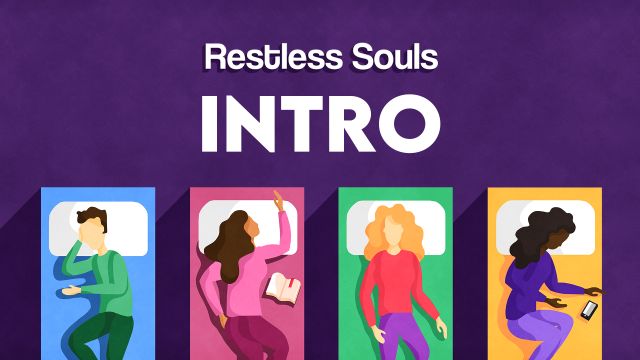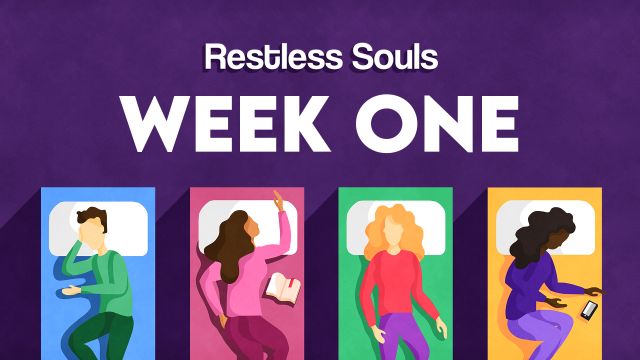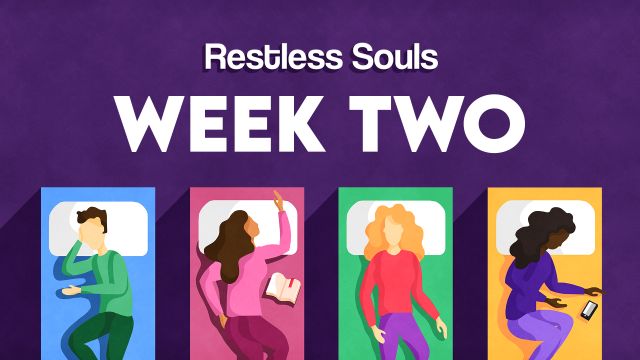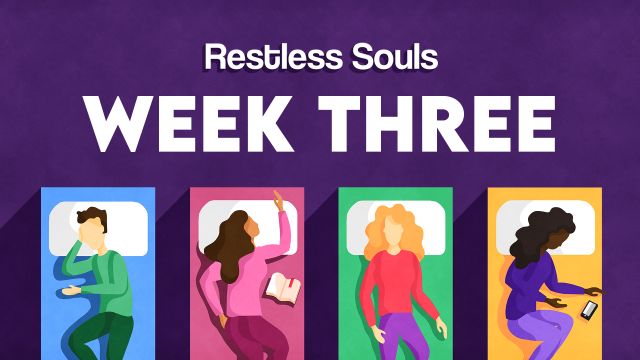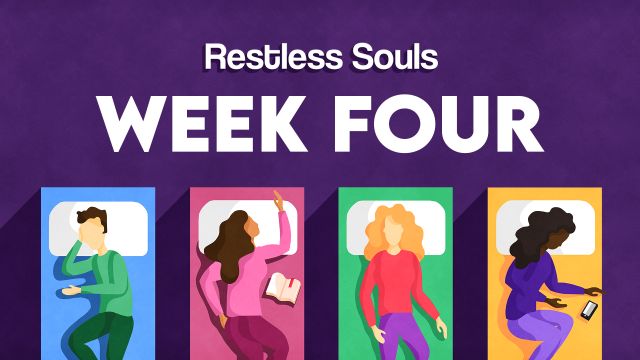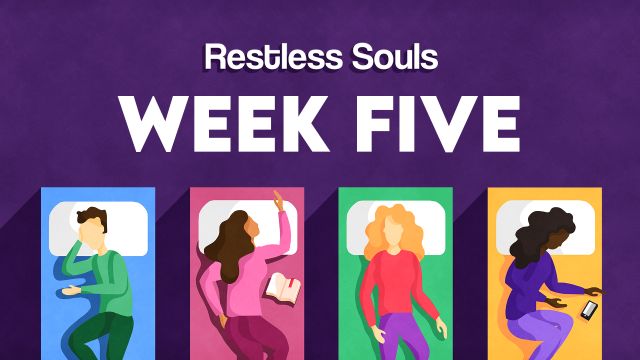Restless Souls - Connect Groups
Introduction
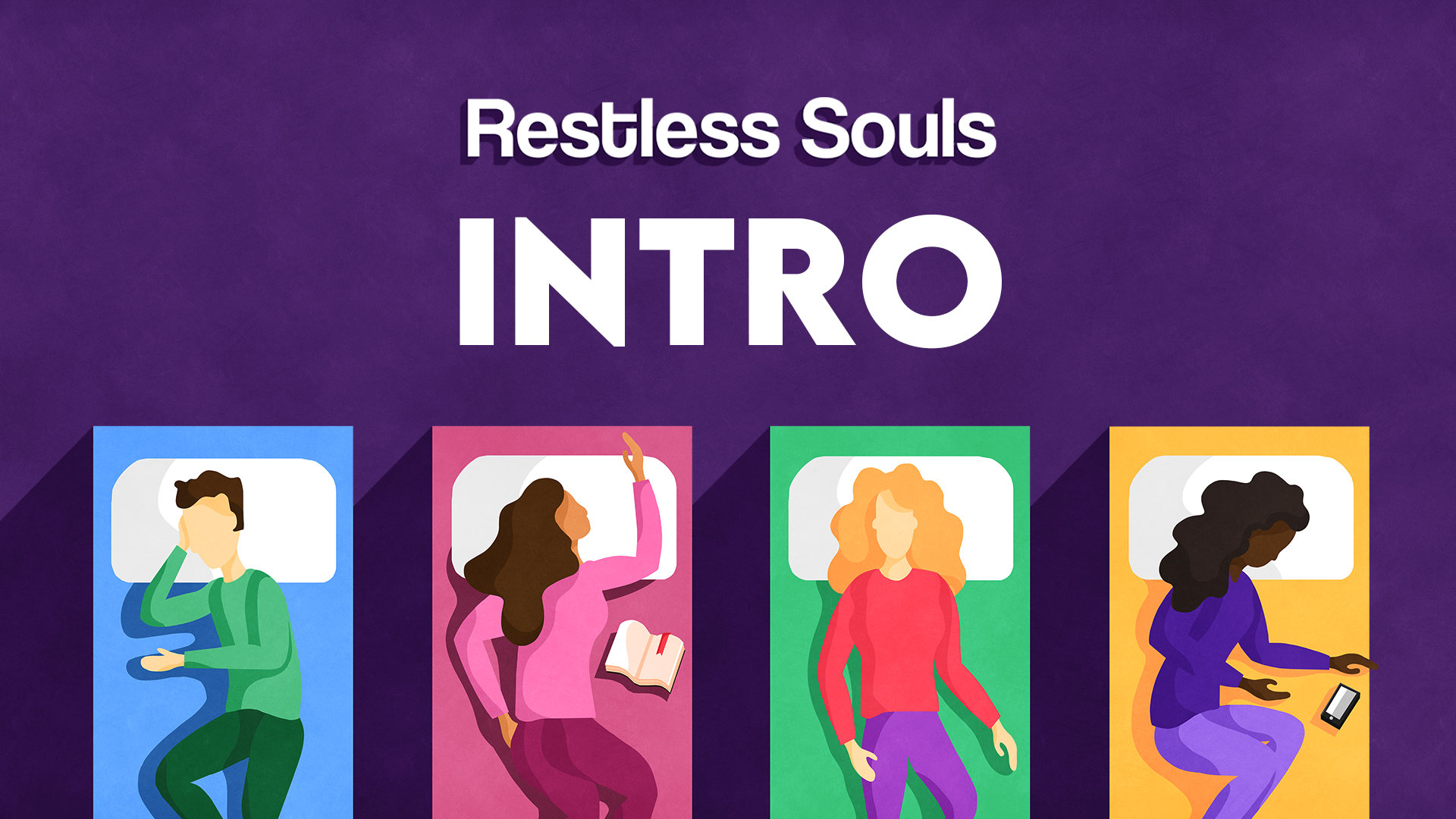
Introduction

To be human — a citizen of heaven with eternity written in our hearts — is in some sense, to be restless, to be ‘on the way’. The things we strive for: contentment, love, belonging, satisfaction, wisdom, and meaning are often found indirectly, when we are on the way somewhere else. When we find ourselves restless... on the move...
From an early age we are drawn to explore, to set out, to shake things up, to do difficult things with tremendous effort. We can’t help ourselves. We just want to see. To try. We get uncomfortable, or bored, or uneasy, or agitated. We get restless.
This restlessness is not a design flaw, but an integral part of being human — of being alert and sensitive to the world around us. Restlessness can be a powerful medium for growth, for learning who and what we are. Refusing to complacently accept ‘the way things are’ can be a vital part of how we experience the transformation and revelation of God’s grace.
Find how to get involved: Connect group Blog
Week One
Part 1: Restless response
Conversation Starter
What do you when you find yourself feeling restless?
 Read Joel 2: 1-2, 12-17
Read Joel 2: 1-2, 12-17
What does it mean to rend your heart?
Read Isaiah 58: 1-12
How can we become restless restorers of the streets in our neighbourhoods? Making them into places where all can live and thrive?
How can we be part of restoring places that have become unfriendly, unliveable or inhospitable?
Read Matthew 6: 1-6, 16-21
Practicing piety…
How can we practice our piety authentically without ostentatiously practicing our piousness to gain status with others?
Week Two
Part 2: Restless wilderness
Conversation Starter
What does the word ‘wilderness’ mean to you?
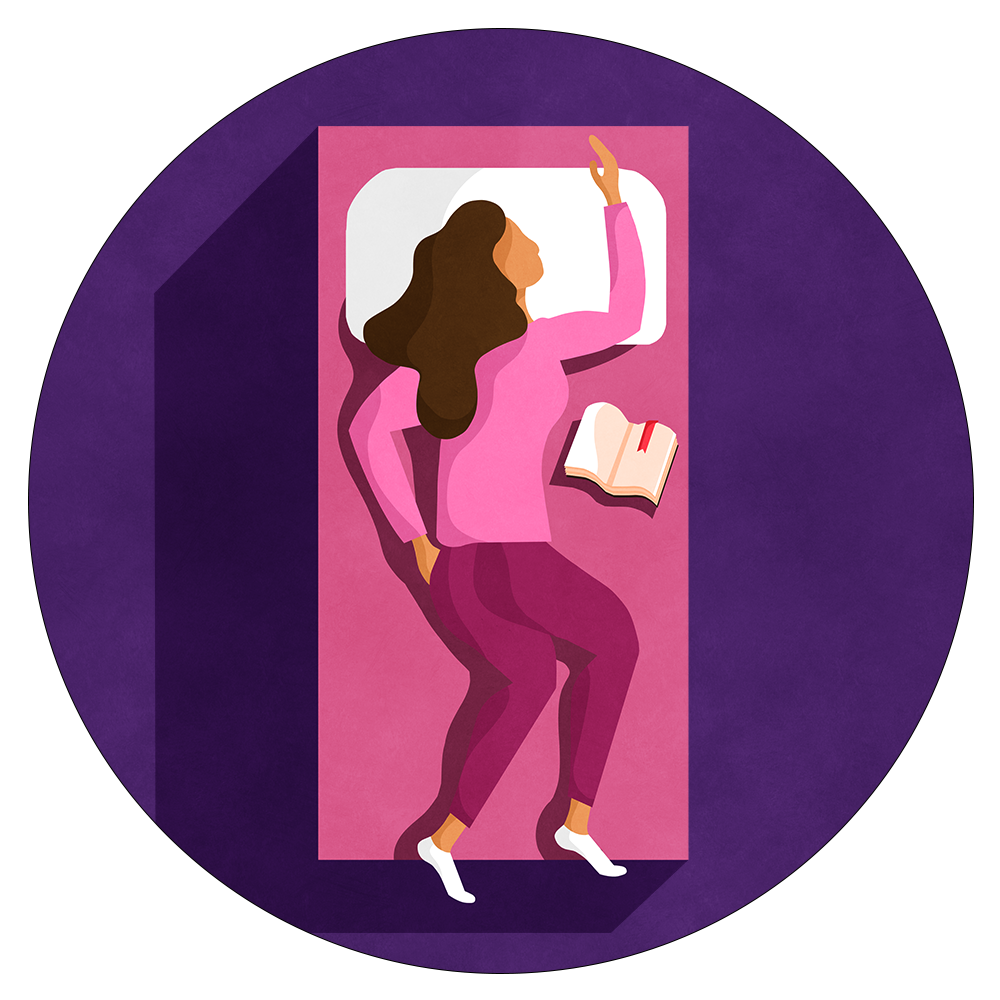 Read Deuteronomy 26: 1-11
Read Deuteronomy 26: 1-11
When you come back from time spent in the wilderness (either a literal wilderness or a metaphorical one) how do you feel? What are your priorities? How do you tune back in?
Read Luke 4: 1-4
Jesus is famished and the devil would have him chewing rocks…
But why doesn’t Jesus set up a bakery that turns rubble into bread? It could provide good jobs in the local community. Why doesn’t he turn a local spring into ‘wine on tap’ that he could then bottle and sell as a culturally valuable and sustainable export? He could then use the profits to reinvest in the plight of the needy. Why didn’t Jesus go into ethical business? Or become an inventor? Or a politician? Or set up a charity? Or found a hospital?
Why does Jesus spend most of his short life in his human form in relative anonymity, quietly living alongside us doing none of the above?
Read 1 Kings 19: 1-15
Sometimes when we are in times of wilderness we understandably look for God in the storms, in the tremors, in the blazes.
And sometimes God finds us in the silence.
What is your relationship with silence? Do you ever spend time simply in silence with God? How does God use silence to speak to us?
Week Three
Part 3: Restless stars
Conversation Starter
When was the last time you looked up at a clear starry night? What was it like? How did you feel?
 Read Isaiah 40: 21-31
Read Isaiah 40: 21-31
Not one star is missing… God’s creation is accounted for and you’re part of that! You’re part of the plan. God wants you to take part and will empower you do so.
How does that make you feel?
Read Philippians 3: 17-4:1
What does it mean — day by day, hour by hour — to be a citizen of heaven?
Read Philippians 2: 12-18
We are shooting stars reflecting God’s glory in the world as we blaze our trails!
What are you glad of today? What are you rejoicing in?
Week Four
Part 4: Restless longing
Conversation Starter
When you’re feeling restless and unsettled what if anything helps you to feel peaceful?
 Read Psalm 63
Read Psalm 63
A wide range of human experience and emotion is expressed in the Psalms. It is a rich library of worship, sometimes tranquil and sometimes uneasy, but always honest and heartfelt. This psalm has a particularly restless quality.
What’s the difference between restful and restless worship? Our shared times of worship together often have a restful quality which can bring peace and comfort to ourselves and others. But is there a place for times of restless worship in our communal worship that recognise the range of emotions that you find in a psalm like Psalm 63?
Can you think of ways we can reflect on and learn from the restlessness of being a disciple in our shared life of worship together?
Read Jeremiah 1: 4-10
Jeremiah felt inadequate but God could see his potential. And God sees your potential too.
How can you, with God and your local community, work together to nurture your potential?
Read John 16: 25-33
How does Jesus’s phrase “But take courage; I have conquered the world!” affect our lives and the decisions we make today?
Week Five
Part 5: Restless love
Conversation Starter
When is being restless a good thing?
 Read Joshua 5: 9-12
Read Joshua 5: 9-12
Part of God’s expression of love was manna in the wilderness but then it was time to lay down roots and leave the manna behind. Because the manna wasn’t the point, the love was the point.
How often do we focus on the manna and forget the love?
Are there examples in our lives where we have expected God to keep providing a certain thing and then we have resented it when it has gone? How can we learn to let go and make way for the new things that God is doing?
Read 2 Corinthians 5: 16-21
What does it mean to be an ambassador for Christ? How does it affect your decision making day to day?
Read Luke 15: 11-32
We’ve got the restless son: waiting for life to begin, for excitement, to find something outside of himself.
We’ve got the restless father: who can’t wait to receive his son, who runs to meet him. He is urgent: there has to be a feast now, quick!
And finally, we’ve got the restless brother: unsettled, and uncomfortable but unlike his father and brother he is still restless at the end of the story. He’s still pacing up and down on the edge of the party.
We leave the parable with the cliffhanger, will the restless brother go in, or won’t he? What do you think — does he go in? Does he stay outside?
And what about you, if you were the older brother would you go in to the feast?




